-
 Bitcoin
Bitcoin $108,165.4587
0.78% -
 Ethereum
Ethereum $2,456.3517
1.15% -
 Tether USDt
Tether USDt $1.0003
0.00% -
 XRP
XRP $2.1934
0.05% -
 BNB
BNB $650.0935
0.52% -
 Solana
Solana $151.3905
2.69% -
 USDC
USDC $0.9998
0.00% -
 TRON
TRON $0.2751
-0.32% -
 Dogecoin
Dogecoin $0.1640
0.87% -
 Cardano
Cardano $0.5631
0.57% -
 Hyperliquid
Hyperliquid $38.7115
4.69% -
 Bitcoin Cash
Bitcoin Cash $493.1868
-0.39% -
 Sui
Sui $2.8217
3.61% -
 Chainlink
Chainlink $13.3994
2.08% -
 UNUS SED LEO
UNUS SED LEO $9.1632
0.94% -
 Avalanche
Avalanche $18.0318
1.97% -
 Stellar
Stellar $0.2388
0.35% -
 Toncoin
Toncoin $2.8763
1.41% -
 Shiba Inu
Shiba Inu $0.0...01160
1.59% -
 Litecoin
Litecoin $86.6393
1.29% -
 Hedera
Hedera $0.1485
0.16% -
 Monero
Monero $315.7948
1.56% -
 Polkadot
Polkadot $3.4240
1.88% -
 Bitget Token
Bitget Token $4.6314
-0.44% -
 Dai
Dai $0.9998
-0.01% -
 Ethena USDe
Ethena USDe $1.0002
-0.01% -
 Uniswap
Uniswap $7.2110
2.59% -
 Aave
Aave $270.6087
6.07% -
 Pi
Pi $0.5350
0.52% -
 Pepe
Pepe $0.0...09545
1.26%
Can the MACD bottom divergence but no large-volume rise be confirmed?
A MACD bottom divergence without a large-volume rise may signal weakening bearish momentum, but lacks confirmation for a strong reversal.
Jun 29, 2025 at 10:50 am
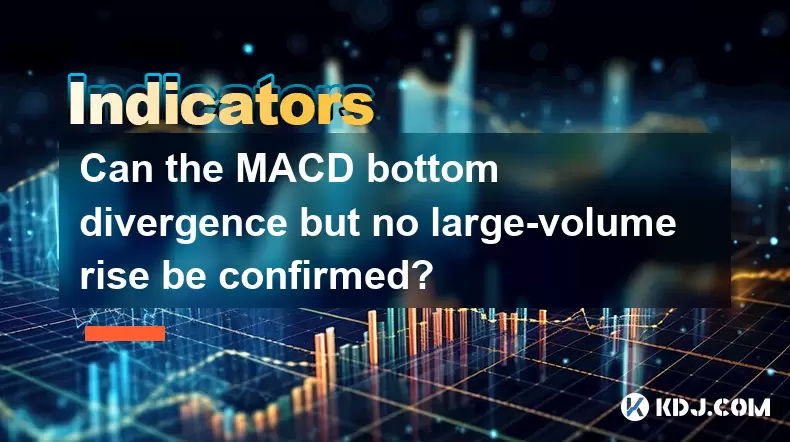
Understanding MACD Bottom Divergence
The Moving Average Convergence Divergence (MACD) is a widely used technical indicator in cryptocurrency trading. A bottom divergence occurs when the price makes a lower low, but the MACD line forms a higher low. This suggests that downward momentum is weakening and could signal an upcoming reversal. In crypto markets, where volatility is high, identifying such divergences can be crucial for timing entries.
However, it's important to note that MACD bottom divergence alone is not a confirmation of a trend reversal. It only indicates potential weakness in the downtrend. Traders often wait for additional signals before acting on a divergence.
The Role of Volume in Confirming Reversals
Volume plays a critical role in confirming price action. When a MACD bottom divergence appears without a corresponding rise in volume, it raises questions about the strength of the potential reversal. In traditional technical analysis, a strong reversal typically coincides with increased volume, as more traders participate in the new trend.
In the context of cryptocurrency, where market manipulation and fakeouts are common, the absence of volume surge during a MACD bottom divergence may suggest that the buying pressure isn't strong enough to reverse the trend. It could also mean that institutional players haven't entered the market yet, or that retail traders are prematurely anticipating a reversal.
Why Large-Volume Rise Is Important
A large-volume rise is generally seen as validation of a price move. If prices begin to rise while MACD shows a bottom divergence but volume remains flat or declines, this can indicate a lack of conviction among traders. In such cases, the rally might be short-lived or part of a consolidation phase rather than a full-fledged reversal.
For example, if Bitcoin’s price starts to climb from a support level and the MACD shows a bottom divergence, but on-chain transaction volume doesn’t increase significantly, it could imply that large holders (whales) aren't participating. This often leads to false breakouts or sideways movement instead of a sustained uptrend.
How to Analyze Divergence Without Volume Confirmation
Analyzing a MACD bottom divergence without a large-volume rise requires a multi-indicator approach. Here’s how you can proceed:
- Use candlestick patterns: Look for bullish reversal candles like hammer or engulfing patterns near key support levels.
- Overlay RSI or Stochastic indicators: These can help confirm oversold conditions and whether momentum is shifting.
- Monitor order book depth: In spot and futures markets, sudden changes in order book liquidity can hint at institutional interest even without visible volume spikes.
- Check on-chain metrics: Tools like Glassnode or CryptoQuant can show inflows/outflows from exchanges, which sometimes precede volume surges.
By combining these tools, traders can better assess whether a MACD bottom divergence without significant volume is worth acting on.
Practical Steps for Confirmation
If you observe a MACD bottom divergence but don’t see a notable increase in volume, follow these steps:
- Wait for a breakout above a recent resistance level: This can act as a secondary confirmation of trend change.
- Observe price action across multiple timeframes: Check both 1-hour and 4-hour charts to see if divergence appears consistently.
- Set tight stop-loss orders: Since the reversal isn’t fully confirmed, risk management becomes even more crucial.
- Use derivatives data: Open interest in perpetual contracts can give clues about whether bulls are accumulating positions.
- Watch social sentiment and news: Sometimes, positive developments can trigger rallies even without immediate volume increases.
These steps help mitigate the risk of entering a trade based solely on MACD bottom divergence without volume confirmation.
Common Misinterpretations and Pitfalls
One of the most common mistakes is treating MACD bottom divergence as a standalone signal. Many traders enter long positions too early, especially in highly volatile crypto assets like altcoins. Another pitfall is ignoring broader market conditions — for instance, a divergence forming during a bear market might not result in a meaningful reversal.
Also, some traders confuse short-term bounces with actual trend reversals. Without volume backing up the price action, it's difficult to distinguish between the two. Lastly, failing to adjust strategies for different cryptocurrencies can lead to misreading signals — what works for BTC may not apply to ETH or smaller-cap tokens.
Frequently Asked Questions
Q: Can I rely solely on MACD for trading decisions in crypto?
No, relying solely on MACD is risky. Always combine it with other indicators like RSI, volume analysis, and candlestick patterns for better accuracy.
Q: What does it mean if MACD divergence appears but price keeps falling?
It means that despite weakening momentum, sellers still dominate the market. The divergence may be early or misleading, and further confirmation is needed.
Q: How long should I wait after seeing MACD bottom divergence without volume?
There's no fixed timeframe, but many traders wait for at least one full candlestick close above a key resistance level before considering entry.
Q: Are there any specific tools to check volume in real-time for crypto assets?
Yes, platforms like TradingView, CoinMarketCap, and CryptoQuant offer real-time volume tracking along with on-chain analytics for deeper insights.
Disclaimer:info@kdj.com
The information provided is not trading advice. kdj.com does not assume any responsibility for any investments made based on the information provided in this article. Cryptocurrencies are highly volatile and it is highly recommended that you invest with caution after thorough research!
If you believe that the content used on this website infringes your copyright, please contact us immediately (info@kdj.com) and we will delete it promptly.
- South Korea, Crypto, and Global Markets: Riding the Digital Wave to New Highs
- 2025-06-29 20:50:12
- Bitcoin Eyes $108K: Will Trump's Nod Push BTC to a New All-Time High?
- 2025-06-29 21:10:12
- Pengu Pumps: Bullish Flags and Whale Wallets Fuel the Fire!
- 2025-06-29 21:10:12
- XRP to $20,000? Crypto Developers Eyeing Ripple's Potential
- 2025-06-29 21:15:12
- Lido, stETH, and Governance: A New Era of Shared Power?
- 2025-06-29 20:52:14
- Litecoin, Algorand, and the Crypto Landscape: Key Trends and Insights
- 2025-06-29 21:15:12
Related knowledge
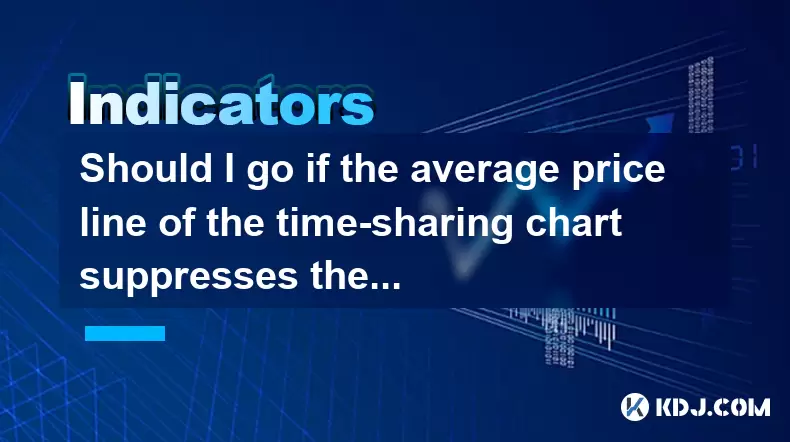
Should I go if the average price line of the time-sharing chart suppresses the rebound?
Jun 28,2025 at 05:14pm
Understanding the Time-Sharing Chart and Average Price LineThe time-sharing chart is a real-time chart used in cryptocurrency trading to visualize price movements over short intervals, typically within a single trading day. It provides traders with insights into intraday volatility and momentum. The average price line, often calculated as a moving avera...
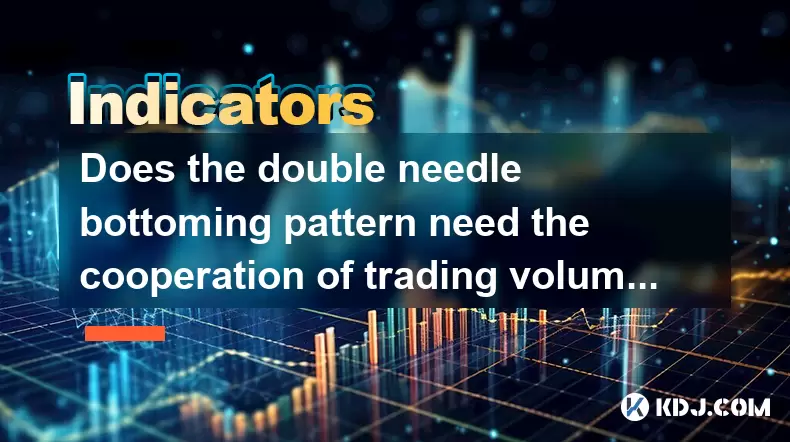
Does the double needle bottoming pattern need the cooperation of trading volume?
Jun 29,2025 at 06:29pm
Understanding the Double Needle Bottoming PatternThe double needle bottoming pattern is a significant technical analysis formation often observed in cryptocurrency charts. It typically appears after a downtrend and signals a potential reversal to an uptrend. Visually, it consists of two consecutive candlesticks with long lower shadows and small real bod...
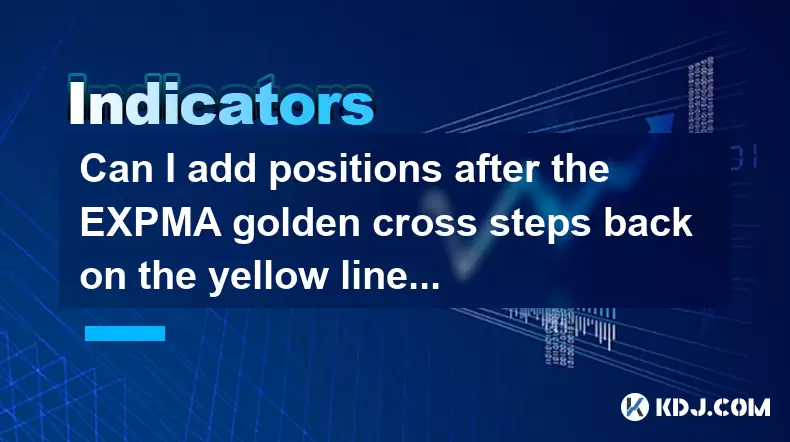
Can I add positions after the EXPMA golden cross steps back on the yellow line?
Jun 28,2025 at 11:57am
Understanding the EXPMA Indicator and Its RelevanceThe EXPMA (Exponential Moving Average) is a technical analysis tool used by traders to identify trends and potential entry or exit points in financial markets, including cryptocurrency trading. Unlike simple moving averages, EXPMA gives more weight to recent price data, making it more responsive to new ...
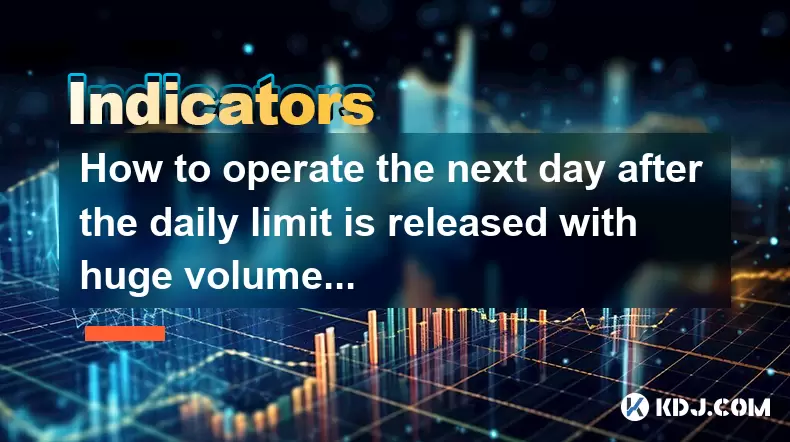
How to operate the next day after the daily limit is released with huge volume?
Jun 28,2025 at 12:35pm
Understanding the Daily Limit and Its ReleaseIn cryptocurrency trading, daily limits are often set by exchanges to manage volatility or during periods of high market activity. These limits can restrict how much an asset's price can fluctuate within a 24-hour period. When the daily limit is released, it typically means that the price cap has been lifted,...
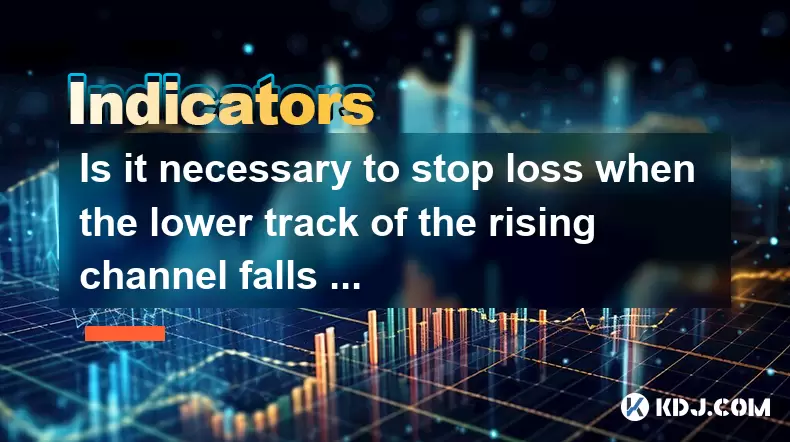
Is it necessary to stop loss when the lower track of the rising channel falls below?
Jun 28,2025 at 05:29pm
Understanding the Rising Channel PatternThe rising channel pattern is a popular technical analysis tool used by traders to identify potential upward trends in asset prices. It consists of two parallel lines: an upper resistance line and a lower support line, both sloping upwards. The price action typically oscillates between these boundaries, offering o...
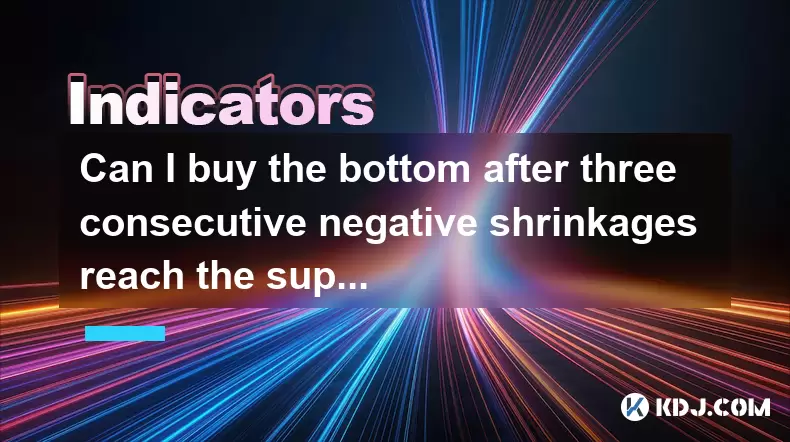
Can I buy the bottom after three consecutive negative shrinkages reach the support level?
Jun 29,2025 at 03:43am
Understanding the Context of Three Consecutive Negative ShrinkagesIn the cryptocurrency market, price patterns are often analyzed to predict potential reversals or continuations. A negative shrinkage refers to a situation where the candlestick body becomes smaller in a downtrend, indicating weakening selling pressure. When this happens three times conse...

Should I go if the average price line of the time-sharing chart suppresses the rebound?
Jun 28,2025 at 05:14pm
Understanding the Time-Sharing Chart and Average Price LineThe time-sharing chart is a real-time chart used in cryptocurrency trading to visualize price movements over short intervals, typically within a single trading day. It provides traders with insights into intraday volatility and momentum. The average price line, often calculated as a moving avera...

Does the double needle bottoming pattern need the cooperation of trading volume?
Jun 29,2025 at 06:29pm
Understanding the Double Needle Bottoming PatternThe double needle bottoming pattern is a significant technical analysis formation often observed in cryptocurrency charts. It typically appears after a downtrend and signals a potential reversal to an uptrend. Visually, it consists of two consecutive candlesticks with long lower shadows and small real bod...

Can I add positions after the EXPMA golden cross steps back on the yellow line?
Jun 28,2025 at 11:57am
Understanding the EXPMA Indicator and Its RelevanceThe EXPMA (Exponential Moving Average) is a technical analysis tool used by traders to identify trends and potential entry or exit points in financial markets, including cryptocurrency trading. Unlike simple moving averages, EXPMA gives more weight to recent price data, making it more responsive to new ...

How to operate the next day after the daily limit is released with huge volume?
Jun 28,2025 at 12:35pm
Understanding the Daily Limit and Its ReleaseIn cryptocurrency trading, daily limits are often set by exchanges to manage volatility or during periods of high market activity. These limits can restrict how much an asset's price can fluctuate within a 24-hour period. When the daily limit is released, it typically means that the price cap has been lifted,...

Is it necessary to stop loss when the lower track of the rising channel falls below?
Jun 28,2025 at 05:29pm
Understanding the Rising Channel PatternThe rising channel pattern is a popular technical analysis tool used by traders to identify potential upward trends in asset prices. It consists of two parallel lines: an upper resistance line and a lower support line, both sloping upwards. The price action typically oscillates between these boundaries, offering o...

Can I buy the bottom after three consecutive negative shrinkages reach the support level?
Jun 29,2025 at 03:43am
Understanding the Context of Three Consecutive Negative ShrinkagesIn the cryptocurrency market, price patterns are often analyzed to predict potential reversals or continuations. A negative shrinkage refers to a situation where the candlestick body becomes smaller in a downtrend, indicating weakening selling pressure. When this happens three times conse...
See all articles

























































































